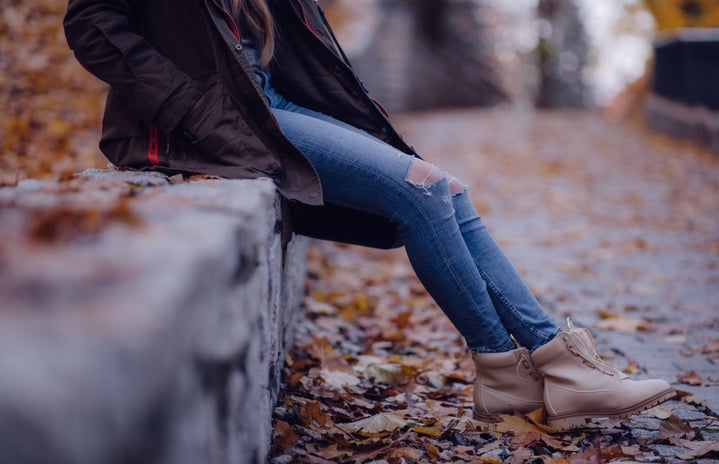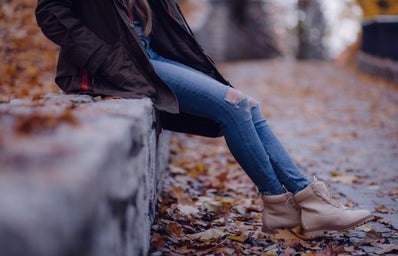When I announced that I would be going travelling alone there were many people who said things to me like “Does that not scare you?”, “Don’t you think that you might have a slightly different experience as a woman in South America than here?”, or just straight up “Please dye your hair dark” – as some of my family members said (semi-jokingly). I was a blonde, gap-year girl venturing out of my comfort zone to Ecuador and Peru. I wanted to improve my Spanish, see the sites, and get to know the culture for three months. Understandably, I had many people looking out for men and wondering how I could respond so nonchalantly with just: “I know it will be difficult but I want the challenge”. It’s worth mentioning that none of these people had ever been to the continent, and therefore I was determined to show them that South American was not all that it is painted as in the Western Media. Furthermore, especially as a woman, I was determined to prove to myself and others that it didn’t have to be dangerous; I could do this.
Well, to be upfront, I did have the most incredible time. I firstly want to make clear that what I am going to talk about here is purely my experience and is by no means meant to warn off other people. This is an opportunity for me to tell it like it was for me, and to not gloss over the problems that arose in these three months that were incredibly fulfilling but also extremely challenging.
Now, I am no specialist on postcolonial politics and didn’t know how a Caucasian person would be viewed in a country that was once made to feel inferior and viewed as an “Other” (and still is in many ways) by people of the same skin colour as me. It was only further down the line that I started to link up events that happened to me with stories from other people, I began to notice that I had a lot of experiences in common with most people I met; the other “gringas” (Latin American word to refer to an English Speaking female tourist).
I started off by flying out to meet my friend from home, who I then travelled with for a month, while she got me adjusted to the travelling experience and somewhat showed me the ropes. Three days in, I was woken up at 7am in our hostel to find a staff member (who I later found out to be the owner of the hostel) taking his shoes off and proceeding to climb into my bed on the top-bunk. I convinced myself he could only be climbing up the ladder to close the window, but when he tried to cuddle up next to me my tongue finally untied and, in the most typical British manner, I came out with: “Could you please leave?”. Thankfully, he did. Though the last thing I wanted to do was to speak to him again, he managed to corner me later, apologising, and blaming his behaviour on misread signals, and whatever he had drunk or taken the night before. I was grateful to have his apology, but even this only came after my friend had complained to one of his colleagues on my behalf, and it did nothing to change what had already happened. I was shaken up, thinking “What am I doing?”, and also worrying (wrong as I was) whether this is what all the men were going to be like here.
Well, as the days went on, I found this question didn’t need much pursuing, as the answer tended to reveal itself. I met respectful men and men that really took me under their wing – one friend who really liked ballet and twerking! – and some feminists. On the other hand, the welcome greeting alongside the question “What is your name?”, I found was often quickly followed up with “Do you have a boyfriend?” Another favourite was the good old trick of asking why I had “left my man at home” in order to get me to concede to the fact that I didn’t have one. In my view this is actually a pretty suave move, awkward English boys might do well to take note of some of these tips.
While learning to leave my somewhat English reserve behind me as I was swept up into a world of Salsa and Reggaetón, I also noticed that when locals danced Salsa together it never felt like a sexual dance but when they danced it with us, it often did. There were a few local men who always stood on the side, not dancing, and not talking. Although I let the often objectifying lyrics of the songs we danced to go over my head, I was still being eyed up and objectified. I learned that we, the foreign girls, the “gringas”, were often seen as an objective for the night and even when you got along well with someone, there was sometimes still that niggling feeling that they couldn’t wait to tell their friend about the “white girl” they had talked to or danced with. I often felt like a conquest and was hit for the first time with a lot of complex thoughts, questioning the historical background that has created the present dynamic of these inter-cultural relationships. Cultural politics aside, it was kind of like when my friends talk about the “sausage fest” in Magaluf or Zante, and I think I’ll probably see a lot more of this attitude of “the evening’s conquest” in many clubs around the world.
Despite this, most of the time I was comfortable, although there were moments when I was made to feel like I had made a huge mistake venturing out on my own. Times like when a kind looking grandma at a bus station couldn’t believe I was alone, and terrified me by insisting that the town I would be heading to later was just a horror-story waiting to happen. However, I never regretted any decision I made to go somewhere or do something, apart from the one time I foolishly got into an unregistered taxi in a rush to get to the bus station. In the end the driver was fine, but he spent the entire time telling me how it could be a dangerous mistake to get into an unregistered car marked “TAXI” and, I can’t lie, I sat there thinking “Is this like one of those film scenes where the murderer tells the victim how they’re going to kill them before they do it?”. Fortunately, it was not.
But, you do have to learn to take care of yourself and the people around you when you are travelling. What happened to be was a not-to-be-ignored reality, which had the potential to be so much worse, and my family’s concerns were fair. However, because my negative run-in happened so soon, I had to be careful not to let it define or alter the rest of my experience. I think that sometimes we downplay and try to sugar-coat experiences which can make them more difficult to live with, especially when we bottle them up and don’t talk about them to avoid giving a negative impression.
Let female travellers share their full, uncensored experience with you. It’s full of positives and negatives. Although I had experiences that I wish had never happened, my time in South America was enlightening; I learned about plant medicine in the Amazon, helped girls in a shelter with creative therapy, hiked the Inka trail (which I would never have thought personally possible). I learned about life from friends and fellow travellers, and I am more resilient now than I have ever been.



